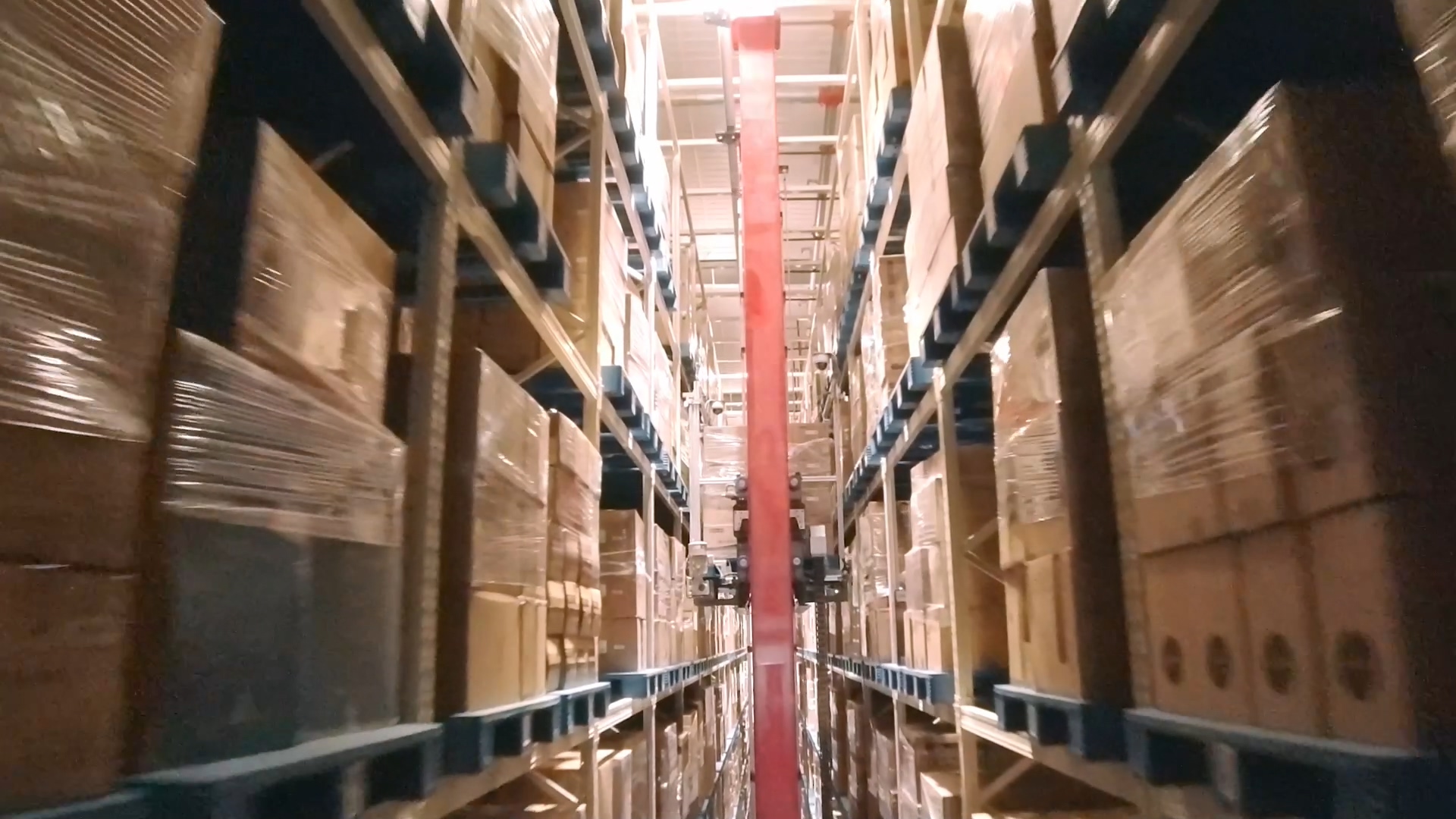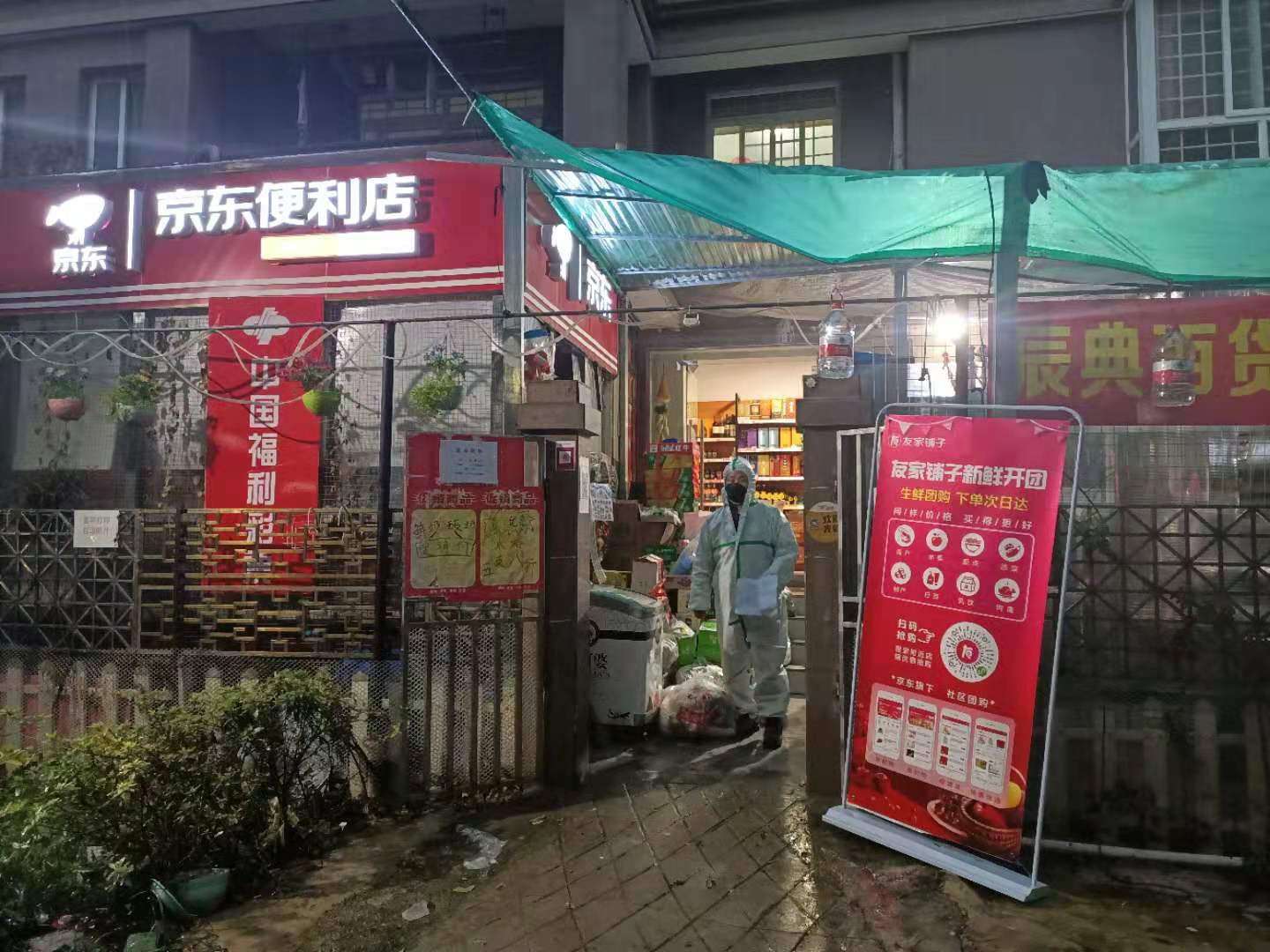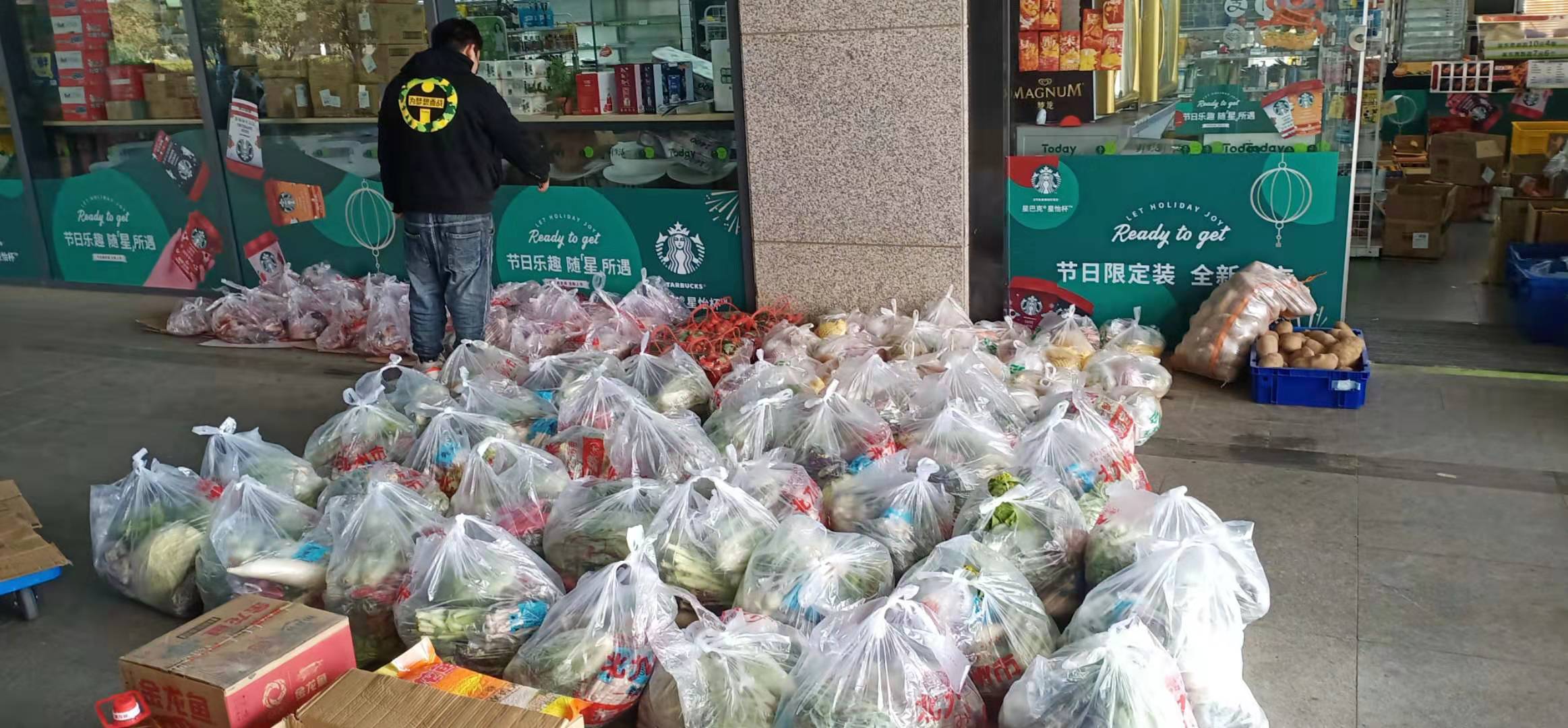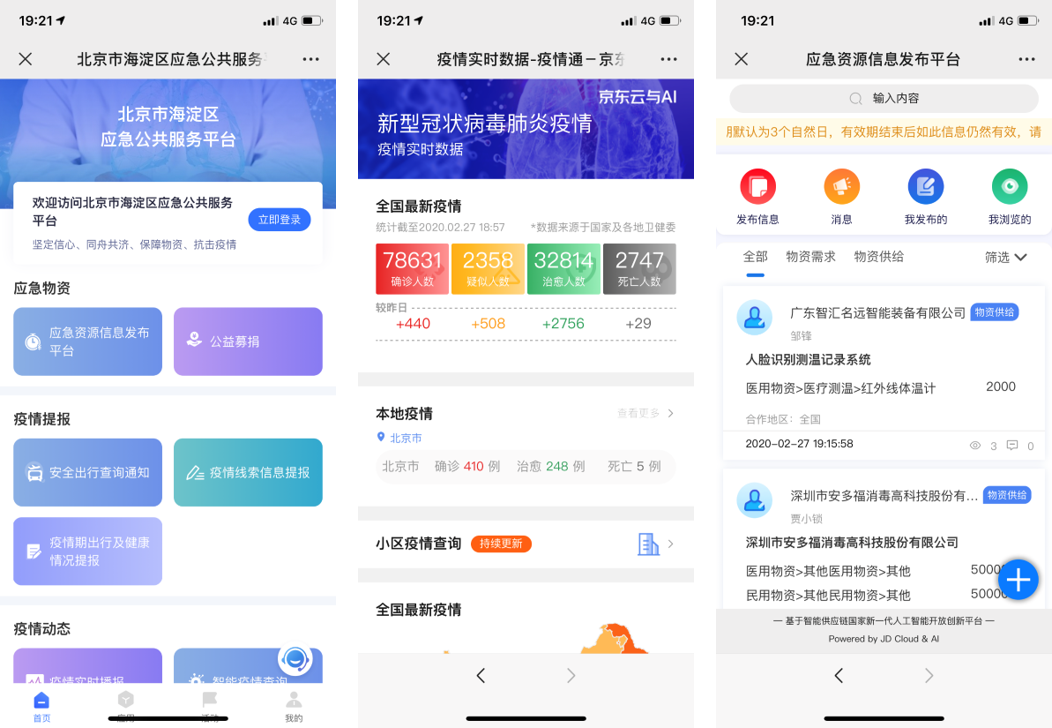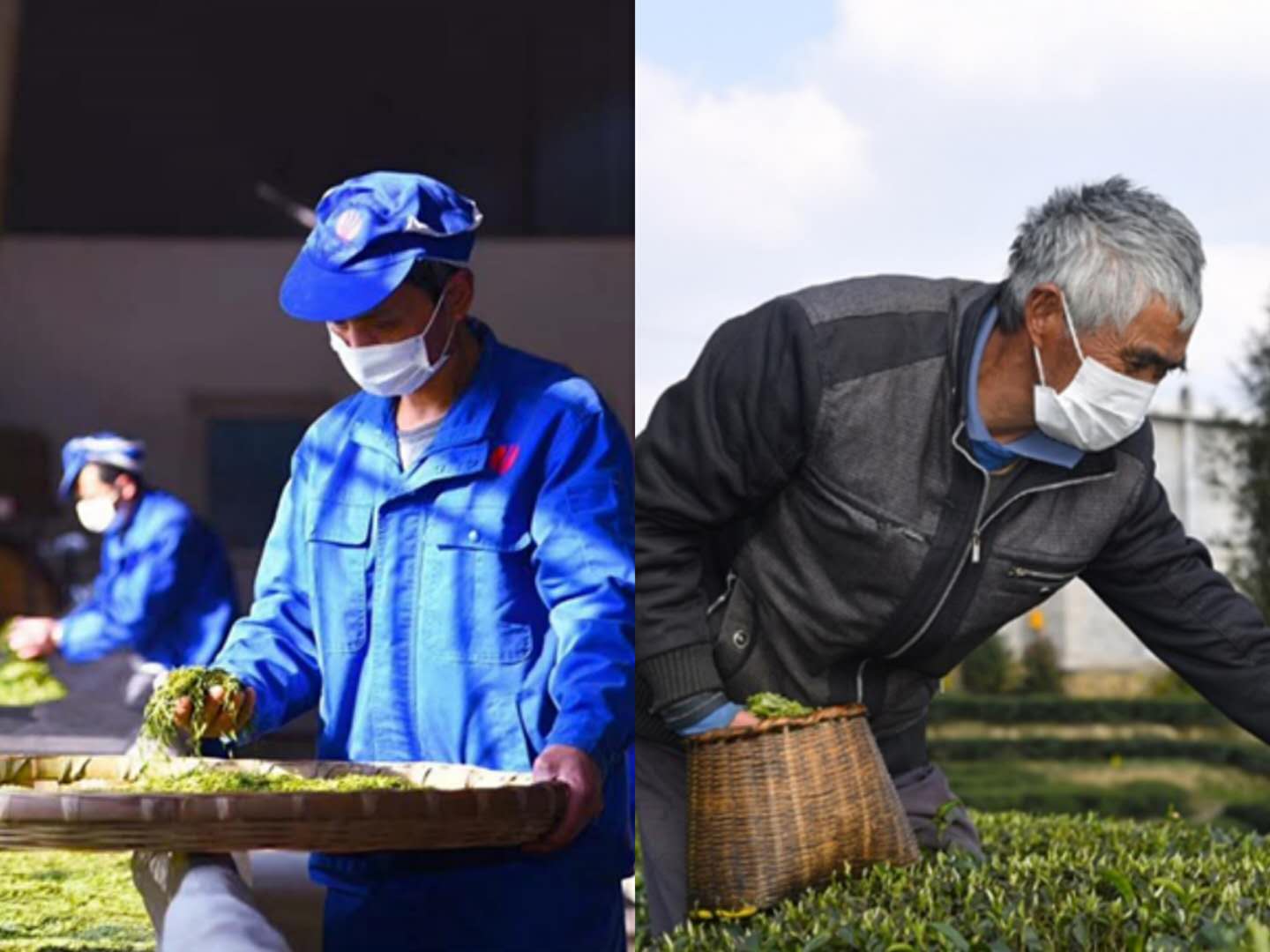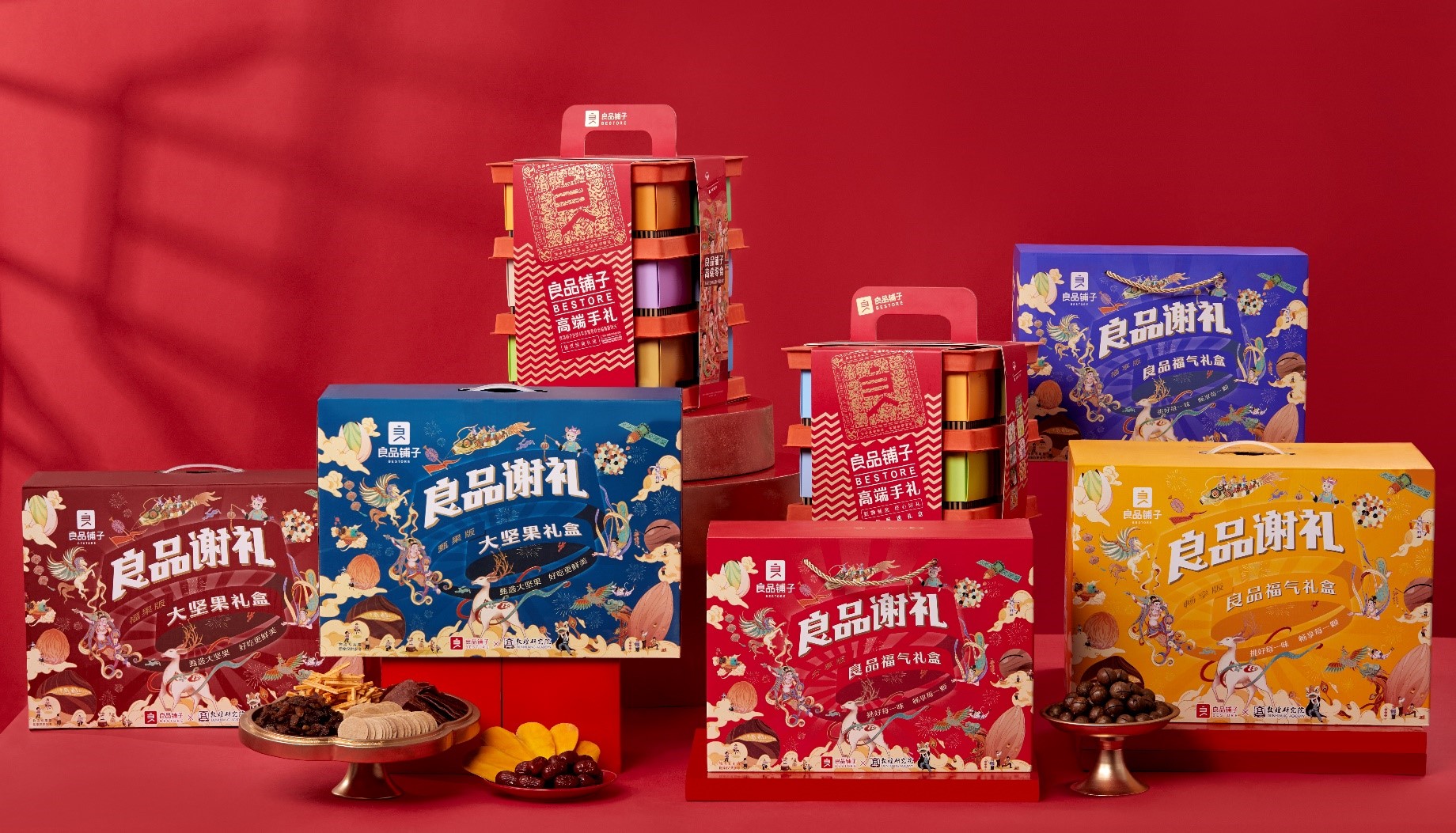by Ella Kidron and Yuchuan Wang
What JD-Y revealed is the formula of how JD has become a game changer in this industry. Through its supply chain innovation, JD has made something extraordinary, ordinary.
The outbreak of COVID-19 in China has resulted in widespread difficulty across the country. JD has faced this head on, guaranteeing regular order placement and timely delivery services across China’s nearly 300 cities. The company has delivered 120 million products including 160,000 tons of rice, grains, meat and vegetables to its consumers during the outbreak.
Shen Zuojun (Max Shen), JD’s chief scientist for supply chain management, explains: “The sudden outbreak of COVID-19 presented four key challenges for JD’s supply chain to overcome: 1) A sudden change in product demand resulting in a structural imbalance between supply and demand, 2) A smaller logistics team than usual due to the Spring Festival holiday, as well as the pressure of closed roads across China, 3) How to ensure merchant credibility and prevent rising prices of epidemic control supplies, and 4) How to manage the challenges brought by the virus’ overall pressure on the economy and insufficient production capacity.”

Max Shen (fourth from right), and some members of JD-Y team in Silicon Valley, CA
Addressing the imbalance
The first problem is how to address the imbalance between supply and demand. Normally, JD would predict sales and prepare inventory based on historical sales so that inventory would be available where the predicted historical demand is. In general, the demand of masks and other epidemic supplies such as disinfectant and liquid soap, is typically low, so inventory in warehouses is also low. Therefore, upstream suppliers remain a relatively low level of production.
Following the outbreak, the demand for these products skyrocketed, and people attempted to stockpile. If JD were to allow people to stockpile freely, then these supplies wouldn’t be allocated sufficiently to meet the real demand. For example, if we are to allow just a few people in a province with a relatively low number of COVID-19 cases to stockpile all available masks in the market, then those masks might go unused sitting in people’s homes, while the epicenter in Hubei province remains in desperate need of these supplies.
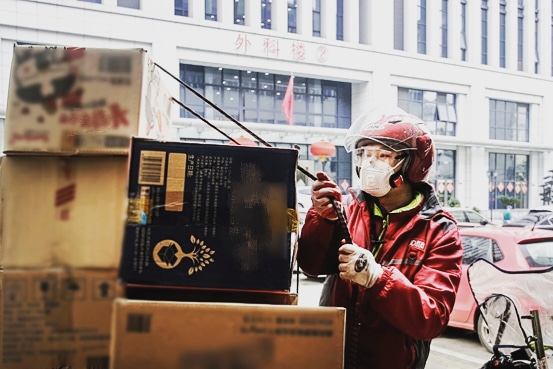 JD courier prepares to deliver much needed goods to hospitals in Wuhan to support orders from patients and doctors there.
JD courier prepares to deliver much needed goods to hospitals in Wuhan to support orders from patients and doctors there.
JD’s supply chain scientists used the SEIR model to forecast demand for epidemic supplies to prevent this from happening. The SEIR model assumes that people carry lifelong immunity to a disease upon recovery, and is used to estimate the number of patients, expected patients, and transmission path of a disease in order to be able to forecast the demand for epidemic supplies according to regional population size, and to control the demand to ensure that limited materials are distributed to the areas where they are most needed. At the same time, JD’s procurement team mobilized upstream manufacturers to increase production capacity and accelerate supply.
Ominichannel fulfillment
In addition, normally, demand for products like rice, flour, oil, etc. is generally higher offline. With the number of people remaining in their homes rapidly increasing due to the epidemic, this demand moved online. Relying solely on the inventory in JD’s warehouses to manage the sudden increase in e-commerce demand of these products would certainly not be sufficient.
To address this, JD-Y turned to its Omnichannel Fulfillment supply chain innovation program. When a consumer places an order online, the platform matches the order with offline supply closest to the customer in real-time, and then arranges for a courier to deliver to the consumer along the most efficient route.
For example, if a consumer in Beijing places an order for two large 5L bottles of cooking oil and a bag of rice in ordinary times, the products would come from a JD warehouse and then go to a JD delivery station near the customer’s home, from where they would then be delivered to the customer. With COVID-19, instead of relying solely on the stock in JD’s warehouses, the omnichannel fulfillment platform will calculate which brick and mortar store nearest to the customer has the items in stock, and then source the inventory from there instead. During the epidemic, tens of thousands of offline stores in hundreds of cities have worked with JD to fulfill customers’ orders, and the daily number of orders fulfilled through the program is nearly five times that of a normal day prior to the virus.
When Mr. Li came back to Beijing after the Spring Festival holiday and had to stay under quarantine in his home at the Xinkangjiayuan residential compound in Beijing’s Daxing district for 14 days, he was faced with the challenge of how to buy daily necessities during the period. JD’s Omnichannel Fulfillment program enabled Mr. Li to place orders on JD for snacks and drinks, which were then sourced from the Watsons store near his compound and delivered to him in just 30 minutes.
 The Watsons store nearby Mr. Li’s compound
The Watsons store nearby Mr. Li’s compound
Network optimization
The second problem is logistics capacity. The epidemic occurred during the Spring Festival when some logistics workers were still on holiday. At the same time there were transportation restrictions and road closures which made transportation and distribution challenging. As a result, some warehouses were unable to supply the cities they used to cover, resulting in numerous delays in fulfillment. It is also challenging to transport goods from JD’s large regional warehouses to lower-level warehouses such as front warehouses close to cities with limited human resources.
JD-Y’s smart warehouse network platform addressed this issue. “Multi-echelon network hierarchical optimization” was used to analyze the status of JD’s warehousing network with the updated epidemic information in real time to calculate and reallocate inventory distribution across the network between cities and provinces. The platform also enables JD’s suppliers to deliver directly to JD’s front warehouses. During the epidemic period, hundreds of supplies have been supplied directly to JD’s front warehouses instead of going through the entire regional system. As a result of JD’s efforts, the online availability rate across the country was stabilized at over 95%.
 JD’s automated warehouse ensures supply during COVID-19 period
JD’s automated warehouse ensures supply during COVID-19 period
Early-warning model
Another issue is merchant management. With the skyrocketing demand for masks, alcohol and other epidemic materials, some merchants took the opportunity to substantially increase commodity prices, while others attempted to provide false inventory quantities and were therefore unable to distribute products on time after customers purchased them, impacting user experience as well as the reputation of the credible merchants on the platform. It is extremely difficult to discover this type of speculative behavior manually. Based on intelligent forecasting and abnormal data detection algorithms, JD.com’s supply chain scientists launched a risk early-warning model, which identified more than 200 suspected abnormal price rises and overselling actions that the company was then able to address.
Finally, there are the challenges brought by economic pressure and insufficient industrial production capacity at a certain time in the future. During the epidemic, JD.com ‘s supply chain scientists are studying data on the impact of historical epidemic events, and combined with the data during the novel coronavirus, in order to forecast future trends of various industries. JD is using this information to actively communicate with suppliers and partners about the future situation, difficulties encountered, and planning and deployment, in order to develop the most effective recovery plan.
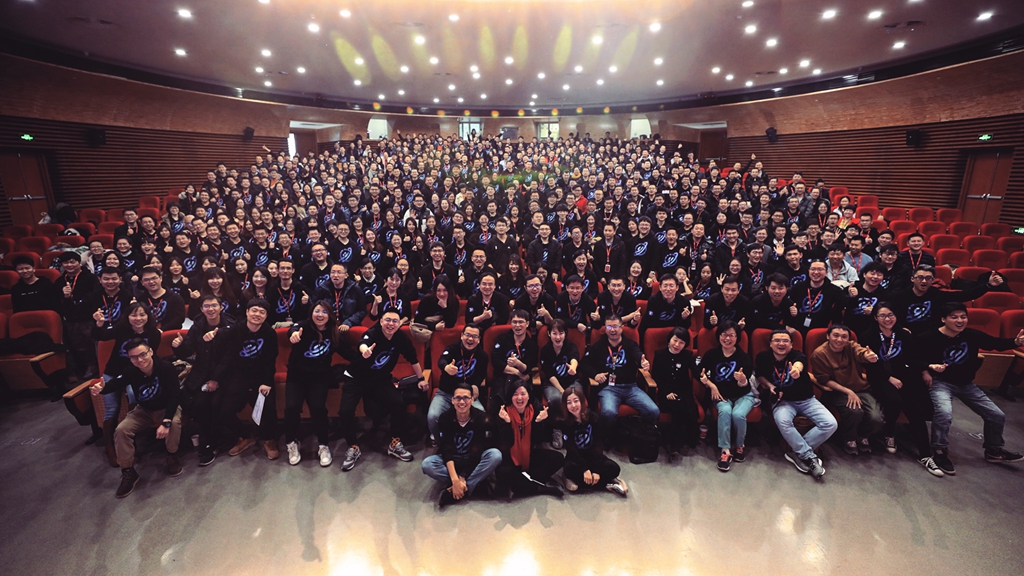
Some JD-Y’s 500-person team gathers at JD Headquaters in Beijing
A cemented mutual trust
Chen Lin, Vice President of JD said, “As the leading supply chain platform in China, JD will continue to open its resources and technical capacity to society to ensure the supply of commodities. We will also work together with the entire industry to support economic development and the resumption of production. “
“During the epidemic, we have further cemented mutual trust and cooperation with our partners. We believe that the concerted efforts across upstream and downstream industry players will certainly help us collectively overcome the difficulties and usher in a new wave of development,” he added.

Chen Lin (fourth from right), Vice President of JD and some members of the JD-Y team
Same- or next-day delivery is not easily achievable by any e-commerce company worldwide. In most places, this level of service is considered extraordinary. In China, however, thanks to more than a decade’s tireless effort, JD has created a situation where this level of service is now the standard, rather than an exception to the rule, and with no additional cost to the customer.
What JD-Y revealed is the formula of how JD has become a game changer in this industry. Through its supply chain innovation, JD has made something extraordinary, ordinary.
(ella@jd.com; yuchuan.wang@jd.com)

